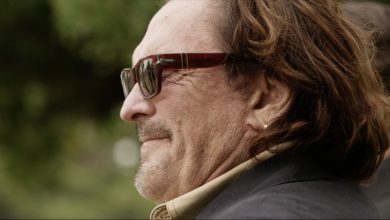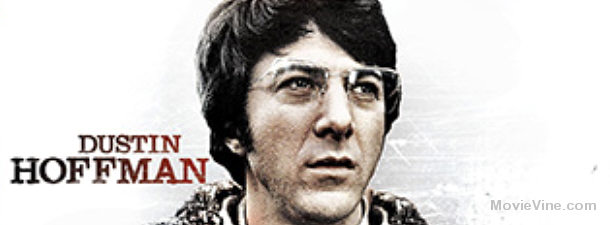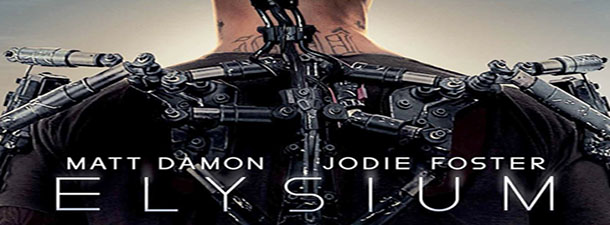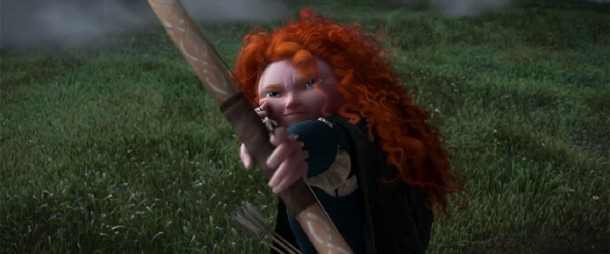Balance with Michael Eklund
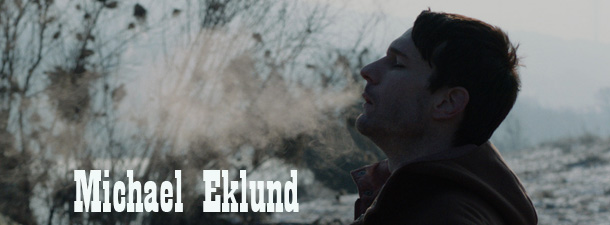
Michael Eklund is the reason people leave their porch light on. His brilliant, yet creepy, portrayal of the psychotic Michael Foster in The Call has resonated so deeply with audiences that people now look over their shoulder in parking lots. Not since Norman Bates in Psycho has a character universally shook people to their core. However, very little of the real Michael is found anywhere within Foster. Michael has a talent of morphing into different characters and breathing a life into them that is almost unprecedented in today’s cookie-cutter formulas. If the past decade of Michael’s characters stood in a lineup you would see a vast and unique group of individuals. His upcoming character Geoff in Errors of the Human Body is no exception. On the eve of the US theatrical and VOD release we caught up with Michael to talk about obsession, emotion, science and truth.
MV: Welcome to Movie Vine, Michael. To begin, let’s discuss Errors of the Human Body. What can you tell us about your character Geoff?
Michael: Thank you for having me. Yes what can I tell you about Geoff. I guess I would have to start at the beginning of his absolute end of his broken heart as he knows it. At his core he feels dead. A dead man with a beating heart. He is a geneticist who is completely dominated by the regret of having not been able to save his son from a rare genetic disease that took the child’s life. He is a man who likes to be in control but one who has no control at all. Geoff is in absolute denial of his grief and guilt. Guilt over his failed marriage and grief of the death of his child. Geoff is so focused and obsessed on the details and the understanding of the disease that killed his child that he has lost himself, lost touch with his humanity resulting in losing what he loves most and in the end his sanity. He tries to approach his emotional life in the same way he approaches his scientific one … something he can solve and the result is running from the dealings of confronting his grief and loss. The more he internally and literally geographically runs from his demons and struggles the more lost he becomes. He is a man who out of paranoia is unconsciously creating a world and life to distract himself … until he can no longer run anymore.
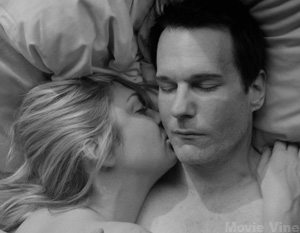
MV: When dealing with the heavy subject matter of loss, Geoff’s divorce and the death of his son, how do you balance your day off set without becoming consumed by his grief?
Michael: That is a good question. All I can say is you don’t entirely. I would love to say that I knew the answer to balance … but for the most part because of how I like to work, the shooting schedule and long hours you didn’t have a choice or time not to stay in it as best you could and take on some of the same emotions as Geoff while filming this movie. It is much easier in some ways staying in it the whole time compared to coming out of it and then trying to build it up and finding it again. The consequences are much harder however. You were left completely wiped out and exhausted. Your mind starts playing tricks on you. But I did, or at least tried to, the best of my ability to be consumed by it. It excites me. Fortunately I have never gone through the nightmare of the loss of a child. But I would relate to it in other ways I could. The loss of something or someone or a past time. Manipulating those emotions. Grief, or more specifically the avoidance of grief, is a major theme in this film. So I started at the beginning by committing to my own ways of grief and taking on those feelings for myself and then would distract myself like Geoff would. With work and other people. But at the end of the day you were still feeling it underneath. Sleep when you could find it also helped but was rare. But basically you couldn’t escape it and I didn’t want to. It would consume you. Like Geoff I was also relocating to Dresden Germany for work. So the city itself becomes almost like another character in the film. So that added to the whole experience of feeling lost and alone. Dresden is a beautiful and special place. At the same time I was surrounded by so many fabulous people on this film. From the other actors, the amazing crew, and even the scientists at the Max Planck Institute of Molecular Cell Biology and Genetics who opened their doors to us as family. We all bonded and grew very close. Some friendships I will have forever were made on this movie and my time there in Dresden. The friendships I made were the balance. By answering this question I also realized the answer. So thank you.
MV: The study of genetics revolves around the controversy of science versus morality. How far is too far when it comes to Geoff trying to make his big scientific discovery?
Michael: At this point in his life there is no going too far. He has lost everything that matters most. What more could he lose? And when you have nothing to lose there are no limits. It seems in life when you have the most to lose that is when you become cautious and safe. This definitely applies to Geoff. He almost prefers to go too far at this point and in hopes maybe even subconsciously manifesting that by doing so will bring him back. It is the natural step to our evolution. We go too far because we are too curious and then later having to pull back to save ourselves. We all do it. But it is a tricky debate … just because we can does that mean we should? That is something me and my director Eron Sheean talked a lot about.
MV: Do you feel that Geoff’s obsession leads him toward insanity, or is it a necessary evil when trying to break through in research?
Michael: Geoff’s obsession is his distraction. It is his inability to cope and understand which leads him off the path and causes him lose grip on reality. He is on a journey. One that no one can stop. He is trying to do the right thing, or at least feels he is in the moment of everyday, but is avoiding the confrontation with his deeper emotional issues and moral responsibilities … over time this will lead you toward your own insanity. But once again when someone has lost so much and has nothing to lose it puts you in a powerful place but a dangerous one. Once in that mindset you are not afraid to take risks and I believe taking those risks are what it takes to make breakthroughs in all walks of life.
MV: Errors of the Human Body stars an international cast. What are some things you learned from observing the other actors’ methods that might differ from those taught in Canada or the US?
Michael: We had an amazing cast! We had the talent of Karoline Herfurth, Tomas Lemarquis, Rik Mayall, Ulrich Meinecke, Ivan Gozalez and Caroline Gerdolle to name a few. From all over different parts of Europe. Some from Germany, London, and France. The words to describe working with them all would be talented, original, magical, beautiful, artistic, brilliant, and skilled. I was the only one from North America so I was in foreign territory. I was on their turf. So I was excited to see if there was a difference and if there was anything I could learn from their methods. Every actor always has their own ways and techniques. And artists never ask artists to show their work. What I did find was that emotion is emotion and truth is truth wherever you are from. It is an unspoken language we all have and can share with. We shared a lot on this film. The heart is the same all over the world. How to tap into that is the secret.
MV: You spent a lot of time on set with your furry co-stars, the lab mice. Did you find it difficult working with mice, or did their presence bring an added authenticity to the scene?
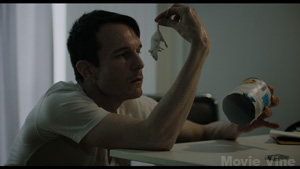
Michael: I couldn’t have done this movie without my co-stars the mice. The mice were a huge part in telling this story. Their presence definitely added to the true life of the world we were creating. And I owe that all to one person. His name is Jussi Helppi. Jussi is the head of Biomedical Services. He trained me how to handle mice. But most importantly taught me the energy of mice and how your energy influences the mouse. We called him the mouse whisperer. It was quite amazing watching him with the mice. How they trusted him. I wanted that authenticity in the film. I wanted that essence in Geoff. Jussi was a huge influence and inspiration to me while making the film. The mice were not difficult to work with at all and that was because of everything Jussi taught me. I owe him a huge thank you for his contribution to the film and the authenticity of Geoff and his relationship to mice. I tried to learn as much as possible from him in the short amount of time we had. He made it very easy for me. He is a great man.
MV: Be honest, would you jump on a chair if a mouse ran through your living room right now?
Michael: Yes! Of course! Not because I am scared of mice … especially after working on Errors of the Human Body. Mice are kind and gentle creatures. But your first instinctual reaction is out of shock that something foreign is in your living space that is not normal. After that processed in my mind I would climb off the chair after screaming WTF! and harness what I learned from Jussi and gently, and calmly, remove the mouse from my living room.
MV: What was your experience like filming in Germany?
Michael: One of the first things that I would like to mention is that Germany has probably some of the most hard working people I have ever had the pleasure to work with. The work ethic there is like no other. At the same time they understand the pleasures of life. Germany and myself have a very special relationship. I fell in love with Germany. It is probably one of the most beautiful places I have ever discovered in my life. Different places cause different emotions and feelings for each person for unknown reasons. I have had different friends or family say to me … this place or that place made me feel like home. I never understood that before. How could a place you have never been, or spent time in, cause you to feel a sense of home? I understood this feeling when I found Germany and specifically Dresden. It felt calm to me and comfortable. It is a haunting place and stays inside of me. I can’t tell you why. It just has that effect. So the experience working there was one I hold dear. A great time of my life. I have returned 4-5 more times since then. Very peaceful … I love it very much.
MV: You have three thrillers hitting the big screen and even more in post-production. Errors of the Human Body is set to release tomorrow, Ferocious recently premiered in Canada, and The Call is currently in theaters. Even though you have played comedic characters in the past, is there any fear that audiences will now only relate to you as a more sinister character?
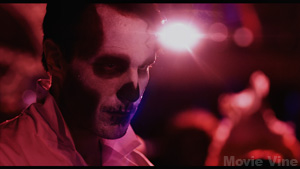
Michael: None what so ever. Whether I indulge in the light side or dark side of a character’s journey … each character I take on always has a sense of humanity. Good or bad they are all people. I approach each role the same way. It is important to find that humanity in any character and role. I don’t believe my darker characters are sinister. They have major problems and issues they are experiencing and some more extreme than others. It is more interesting to explore those darker sides of life and conditions, so it only makes sense that the audience feels the same way. It is interesting because it is different than the normal. There is also a lot of humour in my more darker shades of roles. That is important as well I feel. No character is completely black. We are all shades of grey. Good or bad … I don’t paint my characters with black and white colours. Audiences have always loved a good bad guy and I am happy to give that to them when the part is right for me. But I am also just as much interested in the lighter shades of grey as well. I think it is time to explore that.
MV: What is the difference in character work when preparing for a thriller versus a comedy? Do you have the same approach for the character, or does your process change depending on the genre?
Michael: The preparation for the character is always the same for me, whether it is a comedy, drama, or thriller. The emotional approach is the only element that changes. The process doesn’t change depending on genre for me. The process changes depending on the character’s life of emotions and journey he is on. In some comedies those characters are some of the saddest people to portray. And in something as dark as a thriller there can be a lot of happiness in a character’s insanity. It is always about the character and what he is going through in that particular time and the past that is behind him. That determines where to start and how to approach the emotional mind set of the character. After that you just let go. Of course there are technical differences. Timing when it comes to comedies and intensities when working on dramas and other genres. But the work is the same. Always play the life and spirit of the role to the best of your ability.
MV: There are two schools of thought when it comes to making a living as an actor. The first is to always have a back-up plan. The second is to never have a back-up plan because if you can do anything else then do that instead. What advice would you offer a young actor just starting out?
Michael: I won’t give any actor any advice. All I can share is my experiences on my journey as an actor. Everyone’s story will be different. You have to find it yourself. The worst thing you can give is advice. The best thing you can do is share. All I can say is if you love it then do it. That goes for all areas of life. If you don’t love it then do something you love. Or at least spend your life trying to find it. That’s all any of us can do really. If you are fortunate enough to find it you will not need a back-up plan.
MV: Audiences go to the movies to escape reality. Do you find that you are able to still do the same, or do you now see everything from a technical point of view?
Michael: Both. I got into this business because I fell in love with film. The story telling and the aspect of going on a journey with characters’ experiences that you have not experienced yourself. I always watch movies the first time to find that escape. Then the second time I try to break it down technically what I just experienced and the how and why it achieved to take me on that journey. Film and all areas of art is magic.
MV: One final question, as you continue to scare audiences across the globe what are the things in scary movies that make you jump, scream, or cringe?
Michael: Something unpredictable, something that crosses my boundaries, something I am not desensitized to. That goes for laughing and crying out of sadness and love, as much as jumping, screaming and cringing. I also hope I don’t only continue to scare audiences. I hope to make them laugh, feel, and experience something in all the colors of the pallet as well. If I didn’t then I have failed.
MV: Thank you so much for hanging out with Movie Vine today, Michael. We’re looking forward to seeing Errors of the Human Body this weekend.
Michael: Thank you as well. Enjoy the show!
*Be sure to follow Michael on Twitter. Catch him in Errors of the Human Body opening tomorrow (Friday 4/19) in select theaters and on VOD.
